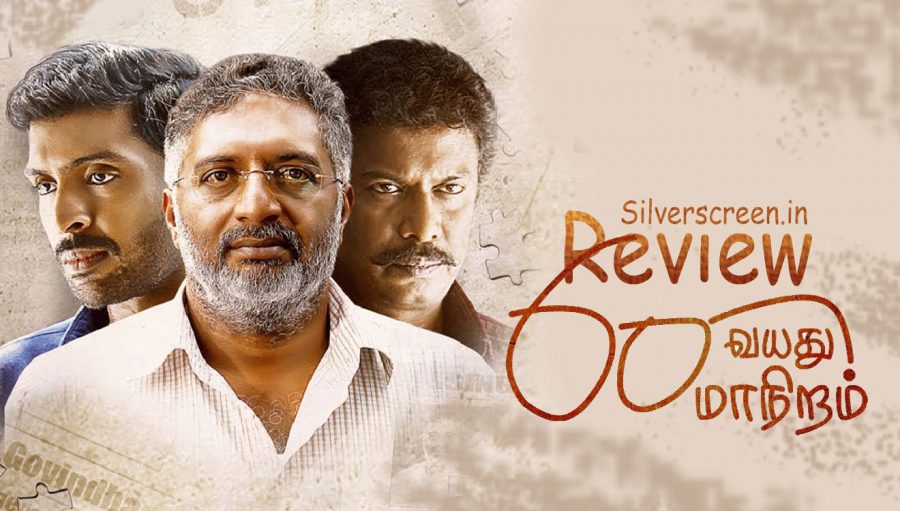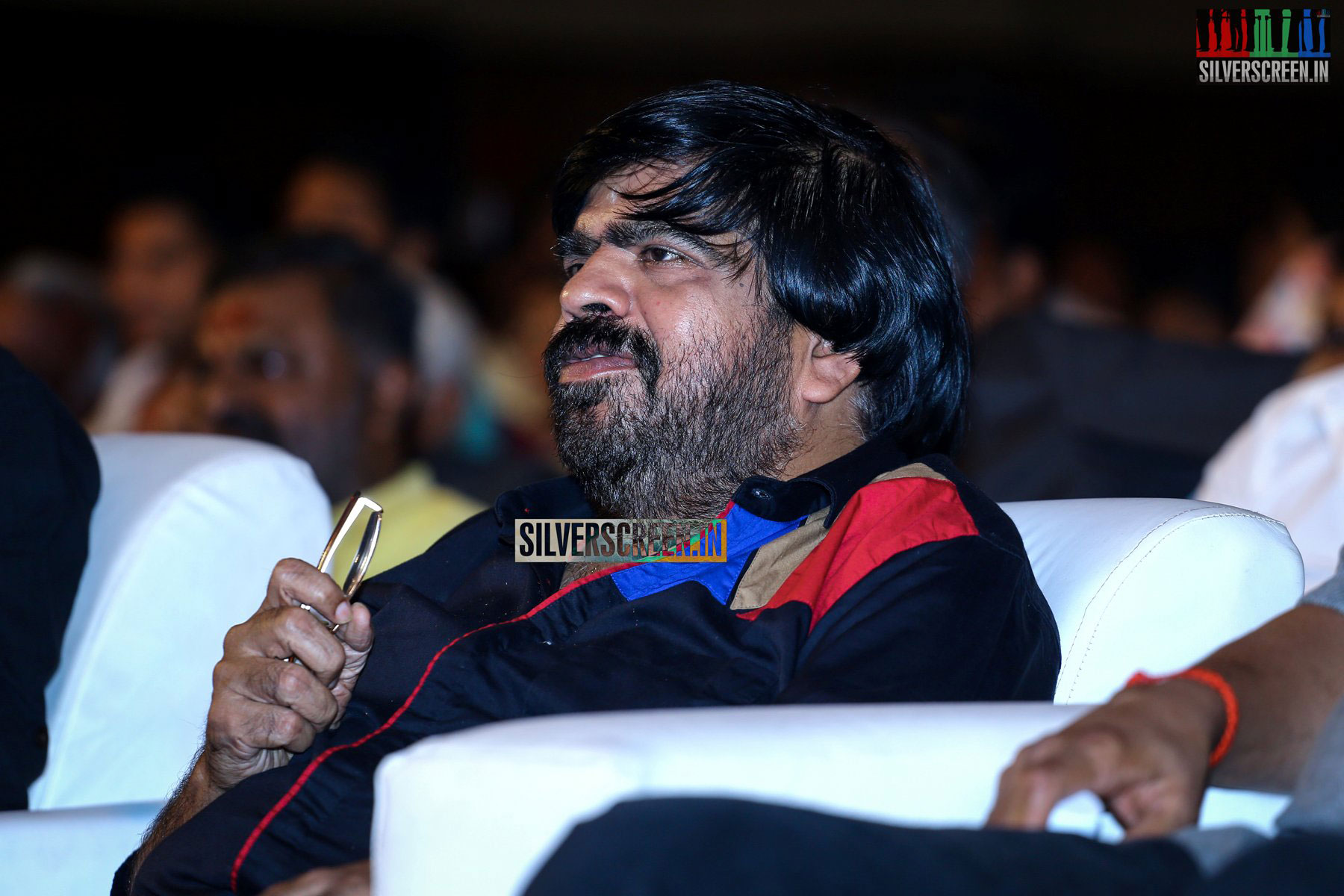Director: Radha Mohan
Cast: Vikram Prabhu, Prakash Raj, Indhuja, Mohan Raman
Composer: Ilaiyaraaja
There’s an existential question that 60 Vayadhu Maaniram – a remake of the Kannada film Godhi Banna Sadharana Mykattu – raises: One about the socially-appropriate-and-appreciated obligation towards parents that adult children often grapple with. Godhi Banna… is rife with child-shaming taunts about ignoring or abandoning parents who had “changed diapers”, and a seemingly uncaring son who is forever on the phone in business meetings. The Tamil version, 60 Vayadhu Maaniram, – an allusion to the text in missing person notices [maaniram referring to the skin tone] – may have done away with the blatant, loud name-calling, but it is thorny all the same. There are no distinct layers to characters; in both the films, the son is at first, shown to be unfeeling, callous for admitting his father in a care facility for Alzheimer’s. The film is unbridled in its scorn towards the young. The background score serves to sympathise with the parent, who, with a slipping memory, has to reacquaint himself with the new environment devoid of familial and familiar comforts.
But, it’s a bloody care facility – not exactly synonymous with the much-reviled “old-age homes” which is propped up as an actual reference. This nuance, and also, several others especially concerning the life and realities of the son are things that the film sorely lacks. The audience is nudged, with music and dialogue and characterisation, towards judging the son who seems to have disposed of his father on the arrival of a job offer. Even for a misguided premise such as this, the setting is all wrong. In Godhi, the mother is shown to be the pivot around which the family revolves. In a telling scene, she despairs of the relationship between her husband and her son. Those moments seem realistic, poignant even – a portrait of a family that grapples with its own set of idiosyncrasies. They sit around watching a cricket match, and until the television is on, conversation flows freely; of Sachin and Dravid, but soon becomes forced and stilted when there’s a sudden power-cut. The mother, who is fast slipping away, wonders how the two men will cope in her absence – after all, they’d never learned to talk to each other. These scenes, while seeking to establish kinship with the audience, are quite counter-productive. You do empathise, and when the mother says the oppressive silence between them woke her up, you laugh, but also wonder at the absurdity of it all. Director Radha Mohan perhaps saw the futility of those moments, and there’s no trace of them in the Tamil version; he launches into the tale of the worldly son and the missing father without much ado.
When an elderly patient (Prakash Raj as Govindraj) at an Alzheimer’s care facility disappears, his son and his doctor launch a search for him; meanwhile, Govindraj has some adventures of his own. It’s a premise that Indian cinema doesn’t quite tire of. It wants to implore the young to be more kind to the old, but instead of presenting arguments and counter-arguments for and against both cases, it doesn’t see past the immediate prospects for drama, content to languish in some adolescent agonising.
Vikram Prabhu (as Shiva) reprises the role of Rakshit Shetty while Prakash Raj turns in for Anant Nag; where Anant Nag had the look of perfect disorientation about him, with nothing more than a bewildered, sometimes confused stare, Prakash Raj is less subtle. During a particular instance, when he “forgets” something, Raj mechanically touches his temple.
For all its faults, Godhi Banna had delightfully metaphorical moments interwoven in its screenplay. Sometimes, unlikely ones. Time lapse, for example, is depicted through a wardrobe. We see Shiva’s wardrobe in different stages of disarray indicating carefree youth to when the clothes are neatly pressed and stacked – an analogy for adulthood. It also establishes the character of Sruthi Hariharan, who plays the doctor caring for Govindhraj as an assertive young woman right in the beginning; she turns down a suitor who needs her help with his business. Hire more staff, she tells him before walking away. Indhuja’s (as Dr Archana, who stands in for Sruthi in the Tamil version) lines, on the other hand, are reduced to the ones she speaks to Shiva.
Recommended
60 Vayadhu Maaniram had quite some potential; it could have been more than just a ‘lesson’ to the young to look after the older people in their lives. It could have been about those typical struggles at the heart of a middle-class Indian family, the aspirations that make or break them – Shiva harbours some bitterness towards his father for failing to send him abroad to study – and, it could have straddled archaic societal expectations with that of the changing realities of the young folk. It doesn’t quite strike that fine balance though; instead, it capitalises on misplaced Indian sentiments about the young being in perpetual debt to their parents for having fed and watered them, and weighs it down with morals that need to be carefully reviewed.
*****
The 60 Vayadhu Maaniram review is a Silverscreen original article. It was not paid for or commissioned by anyone associated with the movie. Silverscreen.in and its writers do not have any commercial relationship with movies that are reviewed on the site.



